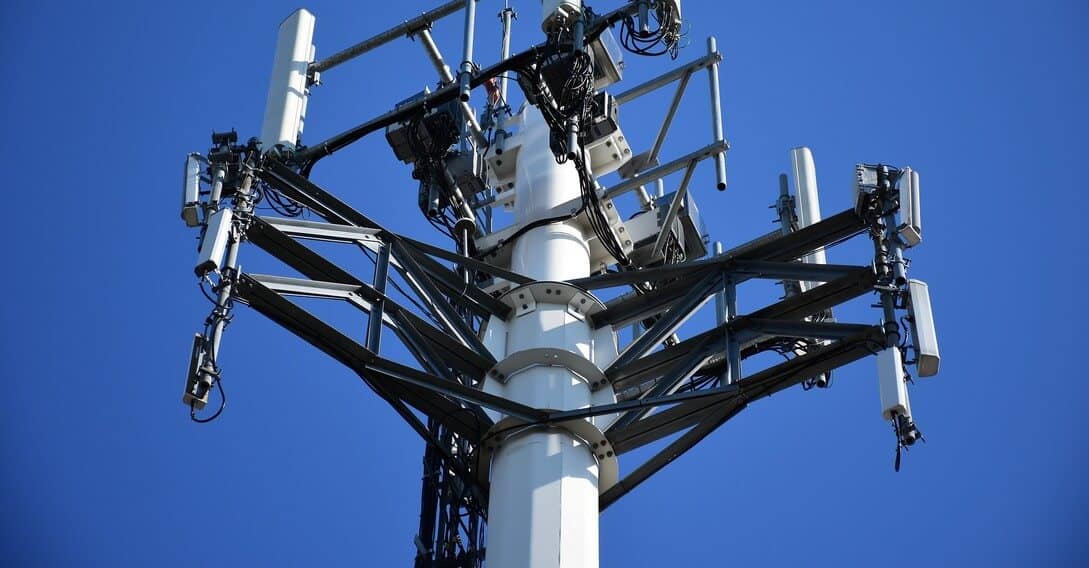The Dark Side of Wireless Technology
Editor: This account served as an early warning for the coming onslaught of cell phone towers that would be placed recklessly within residential and other sensitive settings. The report was obtained by the editor, Sheila Rogers, during an interview with the mother of this family.
 A family farm in an idyllic setting
A family farm in an idyllic setting
Meredith and her husband were dairy farmers on over 150 acres of rolling green land that had been passed down for generations. They had grown to love the simple lifestyle that came with hard work, fresh air, and farming in the Midwest. They and their four children enjoyed good health and happy days.
When the cell phone tower was erected twelve years ago they weren’t too concerned, though they were certainly not pleased that it was just over the property line on the adjoining land and only 800 feet from their house. It was an eyesore, but they were assured it was perfectly safe. “It’s like a 100-watt light bulb,” the company often told people.
“We were naïve,” says Meredith.
Changes in children and livestock after cell phone tower erected
“Over the next few months, we watched as our herd that grazed near the tower became emaciated and agitated—a change from their normally fat and contented state. The whole herd developed rough coats. The vet was puzzled, but blood work produced no answers.”
Meanwhile, within six months the parents noticed changes in their children. There were skin rashes—unusual, raised “hot spots.” They had recurrent kidney infections. The youngest two kids became dramatically hyperactive, and the older ones complained of foggy thinking and concentration problems. Then sleep disturbances crept in. Meredith, in her early thirties, began to develop joint problems.
“Everyone’s symptoms were worse,” she explained, “on foggy or rainy days. I since learned this was because the moisture increases the electrical conductivity. There were times when my preschool child would literally spin in circles.” One day she discovered that their tower had become the “hub” for the entire state. “We buried cows that winter,” she recalls.
Advice from the EPA: Move immediately
Searching for solutions and options, they tracked down a researcher at the Environmental Protection Agency, who gave her the first useful advice they’d had. He told her that as a government official he should reassure her that they were safe. But with his “citizen cap” on, he had to say that they should move immediately.
With hopes of returning one day, they sold the herd but had someone keep the heifers for them. Within two to three months of moving to an electrically clean area in upper Michigan, health problems began to subside. After a year, they all were feeling strong once more. The only problem was that their farm was unattended, they were out of money, and they desperately needed to farm again.
About this time, they spoke with new owners of the cell phone company. The staff expressed disdain for flagrant safety lapses of the previous tower owners. The family was assured that if they returned, everything would now be fine. Excited at the news, they went back to their farm.
With hope in promises, they return to their farm
Despite assurances from the new tower owners, its was not long before symptoms returned. The children lost weight and the girls began to lose hair. Meredith was pregnant but not gaining weight. That son was unfortunately born with anomalies—birth defects that fit no particular syndrome. Neighbors also had complaints; the suicide rate increased in town, and unusual seizures were reported.
Now, some calves were born with front legs shorter than the back and with deformed hooves; some had large tumors—one tumor was three feet in diameter and the calf could not be delivered alive, even with a C-section. And the tumors were not typical to the species.
They had been back for three years when a pediatrician saw the son’s birth defects, heard the story, and told them to leave town. Why had they stayed so long? “We had to make a living. And somehow, when it’s gradually happening, you’re in denial—you don’t see it for what it is,” Meredith said.
Starting afresh, safe and healing
They managed to buy a farm in a safe area and start anew. “My husband insisted we take the cows with us, and within three days they were chewing their cuds—something they hadn’t done for years.” The young boy, though, remains electrically sensitive and hyperactive. Meredith says that if he is within two and a half miles of a tower he develops flushed skin. Computer terminals and fluorescent lights in articless increase symptoms. He has food sensitivities, and damp weather continues to affect him.
And the land—what happened to the farm? Meredith sighs. “It just sits there. Empty. Selling the farm has not been considered. Should we let this happen to someone else?” (2003)
The name of the cell phone company and the source was withheld at the family’s request while they sought legal recourse.









